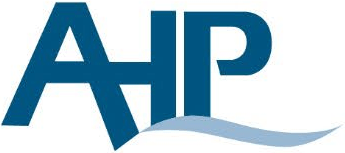
Addressing Substance Use Disorders in the Workplace
Substance use disorders (SUDs) affect people of all ages, races, genders, and socioeconomic classes. Opioid use disorder (OUD), a particular type of SUD, has resulted in a national crisis, with opioid overdoses now killing more Americans every year than car accidents.1 It can be easy to assume that SUDs belong solely in the realm of medical providers, but addiction is everyone’s business. The solution requires that we all work together toward two mutual goals: save lives today and prevent lives from needing to be saved tomorrow.
For over 35 years, AHP has been improving health and human services systems of care to help organizations and individuals reach their full potential. Our consulting, technical assistance, research and evaluation, and administrative services are tailored to support our clients’ vision for a supportive workplace where SUDs no longer threaten the health and happiness of workers.
One Size Does Not Fit All
Employers, unions, insurers, associations, policymakers, and coworkers may be interested in helping workers prevent and recover from SUDs, but they could be stymied by questions like
- How can we make an impact with our limited resources?
- How can we align our approach to SUDs with our other organizational goals?
- Does our work culture support this?
- How do we reach those most in need?
- What legal, human resources, and public policy issues do we need to consider?
We Tailor Solutions to Meet Your Needs
At AHP, we are primed to create a comprehensive set of solutions tailored to the unique needs of your employees and your organization. We can help you develop a strategy based on education, prevention, intervention, culture change, advocacy, and recovery support to help workers stay in recovery and in the workplace.
Priming You for Maximum Impact
AHP believes the power to help workers with SUDs is rooted in an organization’s culture, mission, values, and people. Our experts help you envision the best possible outcomes for you and your members, identify the unique needs of your organization, and design a custom solution with careful attention to social and system dynamics.
This Is Not an Isolated Problem
Almost 50 million Americans experience SUDs, and more than 6 million people currently have an OUD.2 The economic burden of prescription drug misuse costs an estimated $78.5 billion per year between costs of healthcare, treatment, and lost productivity.3
Some Industries Are Hit Harder Than Others
Industries that may employ higher numbers of workers with SUDs include mining, construction, accommodations and food services, entertainment and recreation, utilities, and wholesale trade, management, manufacturing, and forestry, fishing, and hunting among others.4
Take Action Now
It is imperative that leaders in all industries act now. While developing effective solutions can be challenging, doing nothing will only continue to make the problem worse. AHP is ready to help you create and deploy a comprehensive and customized strategy to educate workers, prevent addiction, intervene in critical moments, and provide support for employees in recovery, moving toward a future where American workers are no longer at risk from the dangers of SUDs.
Learn More about A Tragic Storm: Combatting the Opioid Crisis
Learn More about Expanding Access to Medication-Assisted Treatment in California
Learn More about Empowering Opioid Prevention and Recovery Services for California Youth
Learn More about GPRA Data Collection for the Massachusetts State Opioid Response (SOR) Grant
AHP Case Study: Opioids in the Workforce, National Association of Home Builders
AHP assisted the National Association of Home Builders (NAHB) in their industry’s effort to address the prevailing opioid epidemic among its workforce. We provided tools, resources, and options for addressing the epidemic, such as education, employee benefits, and technology for NAHB members to use within their teams.
1 Michigan Department of Health and Human Services. (2020). Michigan Opioids Task Force annual report, p. 5. https://www.michigan.gov/-/media/Project/Websites/mdhhs/Folder4/Folder28/Folder3/Folder128/Folder2/Folder228/Folder1/Folder328/Michigan-Opioids-Task-Force-Report.pdf?rev=3ece06433a5544a59eb6969979051b5b
2 Center for Behavioral Health Statistics and Quality, Substance Abuse and Mental Health Services Administration. (2023). Results from the 2022 National Survey on Drug Use and Health: A companion infographic. U.S. Department of Health and Human Services. https://www.samhsa.gov/data/sites/default/files/reports/rpt42730/2022-nsduh-infographic-report.pdf
3 Florence, C. S., Zhou, C., Luo, F., & Xu, L. (2016). The economic burden of prescription opioid overdose, abuse, and dependence in the United States, 2013. Medical Care, 54(10), 901–906. https://doi.org/10.1097/mlr.0000000000000625
4 Bush, D. M., & Lipari, R. N. (2015, April 16). Substance use and substance use disorder by industry. The CBHSQ Report, Substance Abuse and Mental Health Services Administration. https://www.samhsa.gov/data/sites/default/files/report_1959/ShortReport-1959.pdf
About Us
Advocates for Human Potential, Inc. (AHP) creates powerful solutions to improve health and human services systems. By partnering with the federal government, states, municipalities, healthcare systems, and nonprofits, we help people experiencing the greatest disadvantages lead full and productive lives. We are national leaders in training and technical assistance, research and evaluation, publishing, and dedicated consulting. On issues from workforce development to mental health, substance use disorders to housing and homelessness, we help our clients enhance behavioral health care through systems change. AHP was founded nearly 40 years ago to develop solutions for some of the biggest social infrastructure challenges across the nation. Our company has offices in metro Boston, Chicago, Los Angeles, Phoenix, and Tampa. Find out more at www.ahpnet.com.
For press inquiries, please contact newsroom@ahpnet.com.
